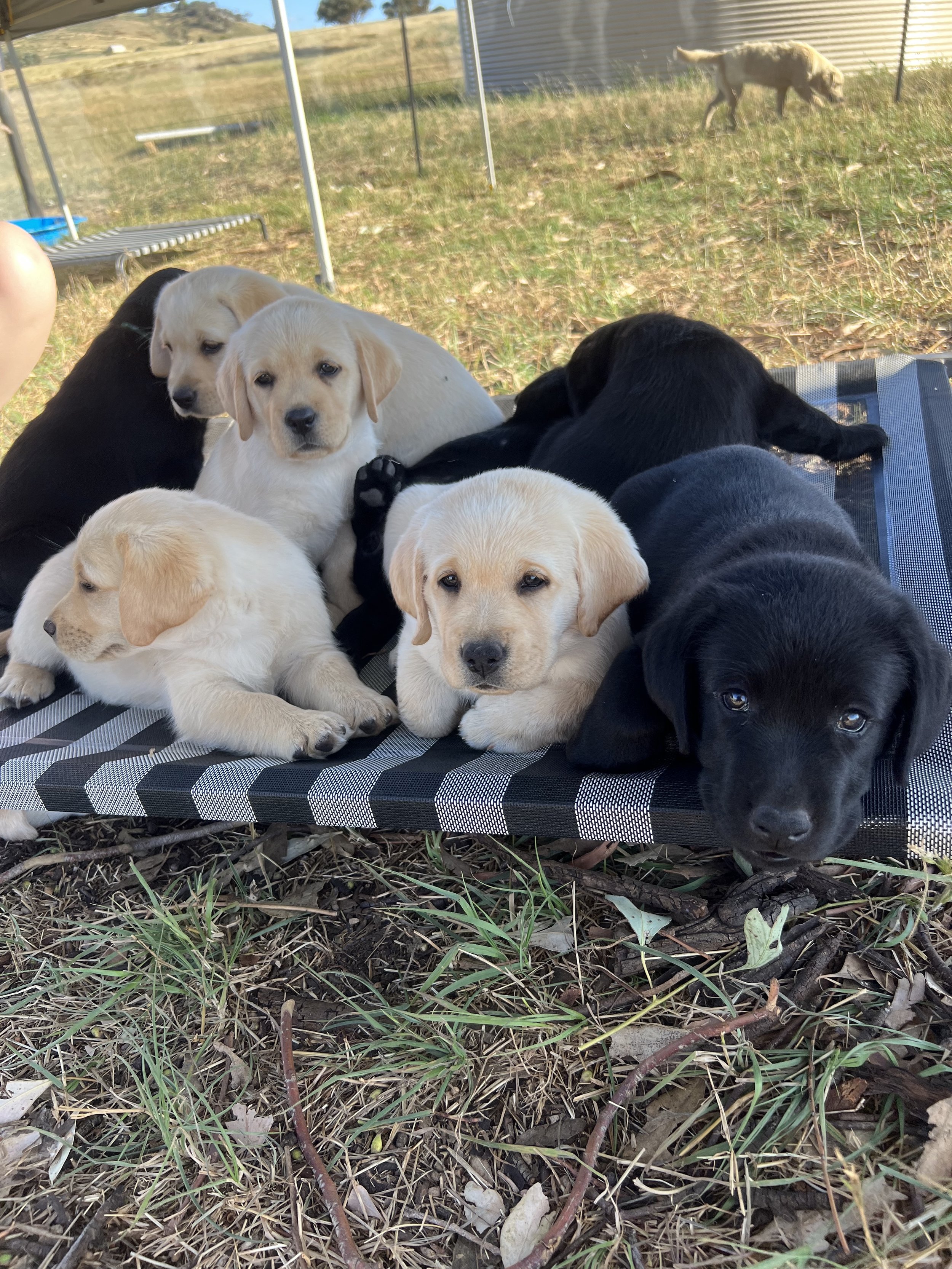
Socialisation and Desensitisation
Puppy socialisation starts from a very young age. At 3 days of age we start with our ENS and ESI protocol, which goes until day 16. This early neurological stimulation allows for the puppies to become more resilient and robust during those vital first weeks. During this time they mainly socialise with each other, their Mum and us humans. However, by 4-5 weeks of age they start to meet all the farm residence. This includes the sheep, cows, horses, alpacas and of course all the other dogs. Socialisation is one of the main reasons that we do not allow our puppies to leave our care before they are 8 weeks of age. In those first 8 weeks they learn how to behave from their Mum, who corrects any socially unacceptable behaviour and they also learn how to play with each other.
Desensitisation occurs quite naturally with our puppies…they are raised in our home for the first few weeks, meaning they are around the TV, radio, vacuum cleaner, the other dogs moving around and barking and people talking. These are every day household noises which they get exposed to from birth. Once they move outside into their outside pen area they continue to confront new noises and smells, here we have tractors, the quad bike, cars, other animals, lawn mowers and again, all the other dogs moving around, barking and playing. This means that when they leave us they have heard, seen and smelled a wide variety of things and this makes them less prone to startle and be afraid.
Socialisation and desensitisation very important aspects of raising your young puppy and must continue when they they leave our care at 8 weeks of age. By the time they reach 14-16 weeks of age puppies should be exposed to as many things as possible.
ENS and ESI
Early Neurological Stimulation - involves the process of exposing the puppies to tactile stimulation, thermal stimulation and to mild stressors, which improve your puppies’ stress responses and thus allows them to become balanced dogs who are able to adjust to new environments more readily. We perform ENS once a day from day 3 to day 16.
Early Scent Introduction - because puppies experiencing the world through scent, conducting ESI with puppies allows them to experience scent for the first time in a controlled manner, improves their scenting ability later in life, enhances their confidence and stability, enhances cognitive abilities, and reduces behavioural issues. The ability to associate and recognise a scent is particularly important for a dog entering a service or detection role. We start ESI with puppies at 3 days of age and expose them to one scent a day for the subsequent 13 days. Scents include things such as lavender, pine, cinnamon, leather, etc.
ENS and ESI are both based on the premise that these exercises activate neurological pathways at a young age which assist in puppy development, resilience and coping mechanisms.
ENS and ESI are said to aid in brain development, improve circulation and the immune system, stimulate neurological systems, and improve stress responses.

